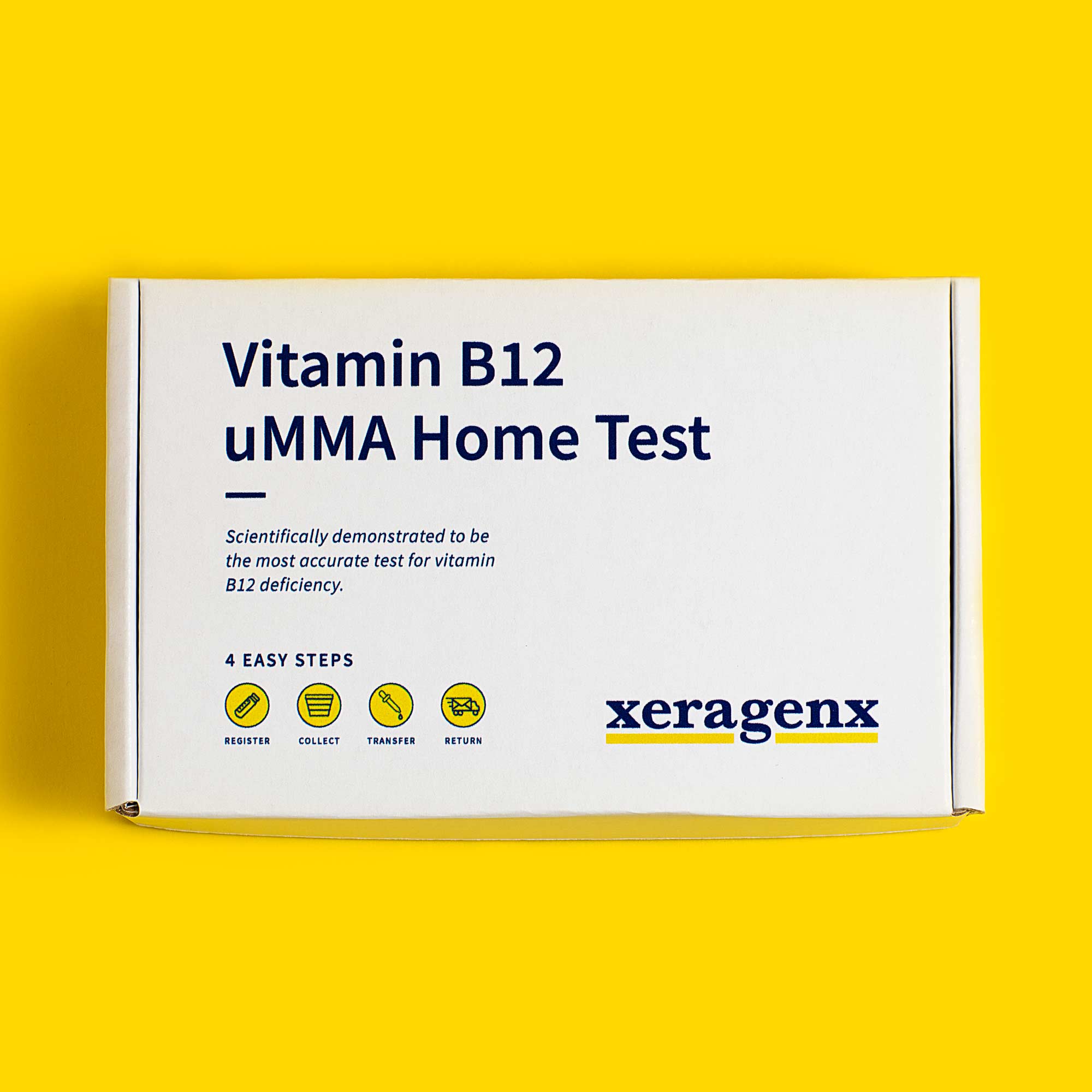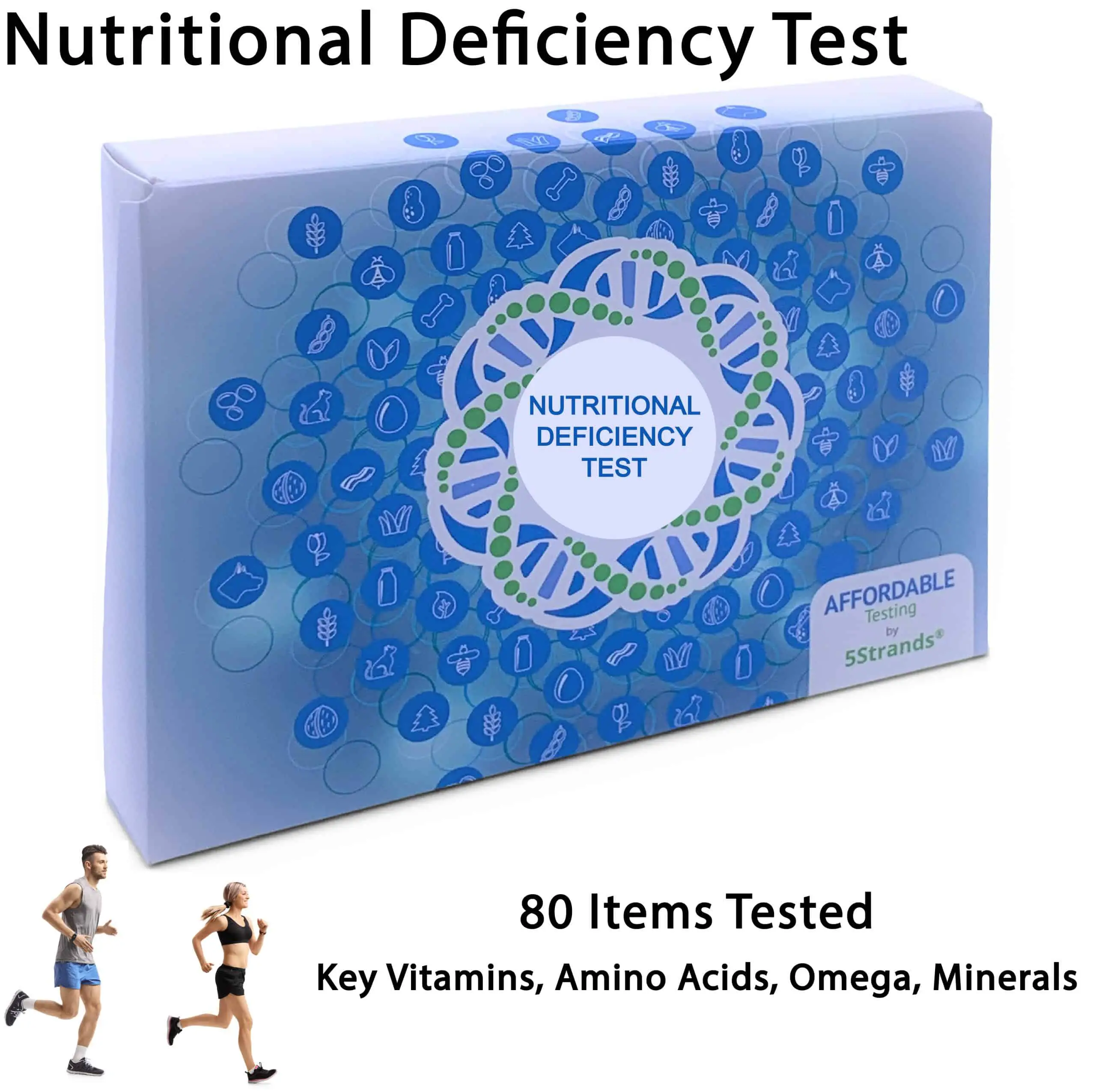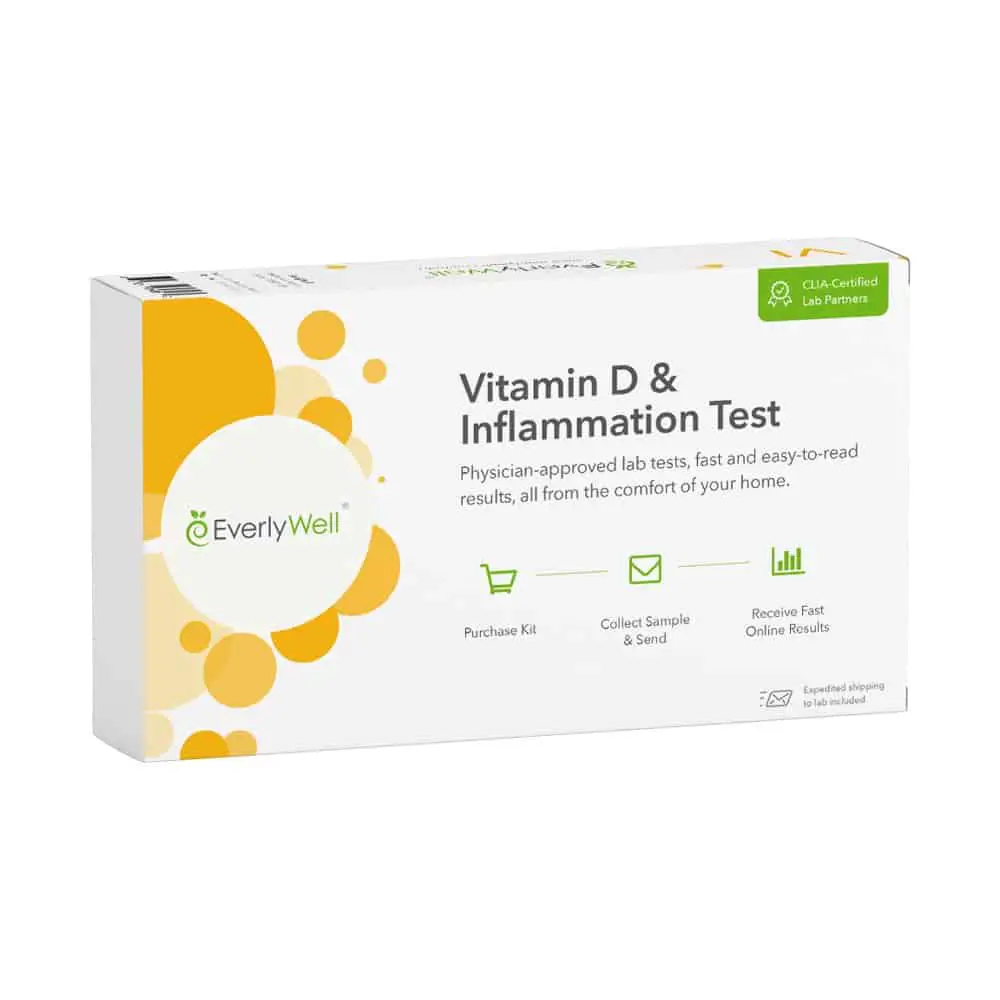Everlywell Vitamin D And Inflammation Test
Price: $99
While there are other quality at-home vitamin D tests on the market, we like that this version from Everlywell measures both vitamin D and c-reactive protein levels.
Vitamin D deficiencies and high CRP levels can indicate inflammation in the body, which may increase your chance of fatigue, as well as more long-term health concerns such as heart disease.
The Everlywell Vitamin D and Inflammation Test uses a blood sample with a finger-pricking device, all of which is included in the kit. As with the Everlywell B Vitamins Test, this kit is CLIA-certified, as well as independently verified by a doctor in your state.
Depending on your results, you may also decide to attend one of Everlywells free live webinars, where you may ask questions about vitamin D and its role in bone health and inflammation.
Overall, this test has mostly positive reviews from customers, noting accuracy and ease of results for the price. A few users have noted slower than expected results.
Best For Rapid Results: Letsgetchecked Mineral Test
-
More expensive than comparable tests
-
Doesnt include iron
LetsGetChecked is a well-known and reputable home testing service offering a range of home health testsfrom hormone and nutrition tests to STI screens. Their Mineral Test measures your magnesium, copper, selenium, and zinc levels.
It costs roughly $149 with free shipping, and can be purchased in any state except for New York. You can use FSA or HSA funds to purchase the test, as well.
The labs that LetsGetChecked uses to read its test results are CLIA- and CAP-certified, helping to ensure result accuracy.
There is also a simple testing process that first involves activating your kit on the app or website. After you collect your sample and mail it off, you may have your results back in as little as two to five days after the lab receives it.
Reviewers are impressed with LetsGetCheckeds speed and customer service but do express that theyd like more follow-up and personalized advice for abnormal levels.
Why Is Vitamin D Important
This at-home vitamin D blood test lets you test for vitamin D deficiency or toxicity in the comfort of your own home with just a simple finger prick. But why does vitamin D matter in the first place?
Vitamin D plays a vital role in the bodyâs ability to regulate the absorption and levels of calcium and phosphorus. It also greatly influences your ability to maintain a healthy bone structure, reduce inflammation, and promote cell growth.
Commonly referred to as the âsunshine vitamin,â vitamin D is a fat-soluble vitamin and is stored in the fatty tissues of the body, which is then released when not in direct sunlight. We typically get 50-90% of our vitamin D from the sunlight itself, with the remainder coming from our diet, where it is mostly found within fatty fish , egg yolks, and fortified dairy products.
Lack of vitamin D or severe vitamin D deficiency is also believed to cause an increased risk of serious illnesses like:
- Cardiovascular Disease
- Muscle Weakness or Pain
Your results will contain your personal level of vitamin D and whether it is low, normal, or high as compared to someone who shares a similar demographic profile as you .
If your results indicate that you may have vitamin D insufficiency, we can provide guidance and general recommendations to help improve low vitamin D levels. We might also suggest other lifestyle changes that are often helpful in getting your bodyâs levels within the recommended range.
Don’t Miss: Where To Buy Naturelo Vitamins
When To Contact A Doctor
- To learn more about your test results. If you have test results and youd like to better understand them, its a good time to reach out to a healthcare professional. They can help you interpret the results and determine the next steps.
- To have a general checkup. Even if youre in good health, if you havent seen a doctor in a while, you can ask for a general health screening that includes testing your vitamin D levels.
- To discuss symptoms that may be affecting your daily life. If youre experiencing symptoms like constant or increased tiredness, hair loss, slow wound healing, or chronic pain, its a good idea to contact a health professional. They can check your vitamin D levels with a blood test and help you rule out other causes behind your symptoms.
- If changes to boost vitamin D have not seemed to help. If spending more time in the sun and increasing your dietary intake of vitamin D havent improved how youre feeling, its worth talking with a healthcare professional.
Is There Anything Else I Should Know

Trace minerals are found in varying concentrations in a wide variety of foods. Some forms of minerals are more bioavailable from an animal source than from a plant source, such as heme-iron found in meats versus non-heme iron found in vegetables, grains, and beans. Minerals are also added to foods to make them more readily available, such as fortified grains and cereals, fluoridated water, and iodized salt.
Also Check: Quercetin With Vitamin C Benefits
Raising Your B12 Level
Taking B12 supplements will bring back and maintain proper B12 levels. “The body does not create B12 on its own,” Graham explains.
Healthy adults should take in 2.4 mg of B12 daily. For some, especially those with autoimmune diseases like pernicious anemia, B12 must be taken in shot form to help carry B12 directly to stomach cells.
Vitamin D Deficiency Test By Post
With all the news in the press about the benefits of having good levels of vitamin D, e.g. prevention of cancer, especially breast cancer, heart disease, Type 2 diabetes and osteoporosis, it is important that you know whether or not you are lacking in this vital vitamin by taking a simple blood test.
What is Vitamin D?
There are two types of vitamin D: 25-hydroxyvitamin D and 1,25-dihydroxy vitamin D .
Both types of Vitamin D play many roles in your body, such as helping you absorb calcium, regulate blood sugar levels and maintain healthy bones.
It is essential for bone growth and development, muscle function and normal cell division.
However, most people don’t produce enough vitamin D because they spend less time outside under the sun and use sunscreen regularly.
Vitamin D is essential for the absorption of calcium and phosphorus, which help build strong bones.
In addition, vitamin D helps regulate blood levels of parathyroid hormone, which regulates how much calcium is absorbed in your body.
Vitamin D also plays a role in cell growth regulation, immune function, muscle contraction, insulin production, and many other functions
There is growing evidence that vitamin D deficiency may increase the risk of several chronic diseases, including cardiovascular disease, type 2 diabetes, multiple sclerosis, rheumatoid arthritis and some forms of cancer.
Some studies suggest that vitamin D supplementation may reduce the risk of developing these conditions.
Read Also: What Vitamins Should I Be Taking In My 30s
Treating Vitamin D Deficiency
For adults, the RDA of vitamin D is 600 IU . Foods rich in vitamin D include salmon, herring, sardines, canned tuna, oysters, shrimp and mushrooms. Or, choose cow’s milk, soy milk, orange juice, oatmeal and cereals that are fortified with vitamin D.
You can also get your daily dose by going out into the sunshine for 10 minutes without sunscreen .
For severe deficiencies, your doctor might prescribe a vitamin D supplement.
Unlike other vitamins and minerals, vitamin D levels are regularly tested in routine blood tests at your annual physical, so it’s easy to identify deficiencies.
Your Night Vision Deteriorates
If you don’t take in enough vitamin A, your night vision and the sharpness of your sight could deteriorate over time.
“A lack of vitamin A causes the cornea to become dry and that makes the eyes cloudy and can lead to vision loss,” Graham says. “It can also damage your retina.”
If you notice changes in your vision, schedule a visit with your ophthalmologist, who will examine the back of your eye.
Recommended Reading: Can I Use Vitamin C With Niacinamide
Get A Clear Picture Of Your Health
Your results might be based on hard science, but that doesnt mean you have to be a scientist to understand them. Our health dashboard gives you easy, secure and confidential access to your own results.
Science made simple
See at a glance if your results fall outside the normal range, and compare your results to others.
Personalised expert advice
Get personalised and practical advice from our team of medical experts so you know what steps you need to take to improve.
Know your health inside out
Find out the impact each health marker has on your health with our bite-sized information. We also provide deep dives for those who want to know more
How Much Does A Vitamin D Test Cost
Vitamin D tests vary in price depending on the brand a person chooses and the features a product comes with.
A person can also save money and subscribe to a membership plan if they need to get tested every month or every 6 months.
Also, most companies do not accept insurance coverage. However, buyers may be able to provide an insurance claim or check whether their insurance provider may help reimburse some of the costs involved in home testing.
Read Also: What Vitamins Can I Take To Speed Up My Metabolism
Vitamin C Deficiency Test
Vitamin C plays a major role in the growth and repair of body tissues. Weakness, muscular pain, sunken eyes, and loss of appetite are some of the symptoms of vitamin C deficiency. Other symptoms include rough and bumpy skin, dry and damaged skin, easy bruising, slow healing of wounds, swollen joints, tooth loss, fatigue, stress, and low immunity. It can even lead to scurvy and anemia.
A vitamin C blood test checks vitamin C deficiency. A capillary fragility test is also done to determine the same using a blood pressure cuff. You can consume vitamin C tablets or eat vitamin C-rich foods to prevent the deficiency. Citrus, red and green peppers, tomatoes, broccoli, and greens are good vitamin C sources.
The Difference Between A Healthy Body And An Undernourished One

Our body needs a host of vitamins and minerals to carry out its day to day functions and ensure the optimum health of our organs.
The presence of nutrients in our blood keeps our skin glowing, bones strong, hair healthy and creates an energetic feeling in our body.
Lack of vitamins may contribute to various problems like dry skin, hair loss, frequent infections and many major diseases.
Recommended Reading: How To Find Out What Vitamins You Need
What Is Vitamin Deficiency
Vitamin deficiency occurs when you have a chronic lack of a specific vitamin. If the deficiency is caused by poor nutrition then it is called primary deficiency but if its caused by an underlying condition, its known as a secondary deficiency.
Secondary deficiencies can be caused by things such as malabsorption, chemotherapy, or diseases such as HIV.
Dont Miss: What Vitamin Is Best For Heart Health
How Do You Test For Nutrient Deficiencies
Nutrient testing is performed through taking a blood sample.
Blood samples can be taken from a needle puncture in the arm or from a finger-prick lancet.
Other non-invasive forms of nutritional testing is called Nutrition Response Testing.
Nutritional Response Testing stats by analyzing your autonomic nervous system and the flow of energy to every part of the body.
Instead of using an EKG machine, practitioners use their hands to detect certain activities.
Recommended Reading: Vitamin K Dose For High Inr
What Are The Consequences Of Vitamin Deficiencies
While the exact health concerns vary by the type of nutritional deficiency you have, the consequences may go beyond feeling fatigued.
For example, an extremely low intake of iron could lead to anemia, and a long-term vitamin D deficiency could impact your bone health and overall inflammation in the body.
A Quick Look At The Best At
A vitamin D test determines the vitamin D levels in the bloodstream. This type of test may suit individuals with chronic conditions, such as asthma, psoriasis, or an autoimmune disease.
People can receive vitamin D from sun exposure , supplements, and some types of food.
When a person is out in sunlight, UVB rays convert to vitamin D. This conversion only happens when a person is outside, as UVB rays cannot travel through glass. Additionally, the weather, time of day, and skin melanin content affect how much vitamin D a person gains through the sun.
Vitamin D from supplements is often in the form of lanolin from sheep or the animal-free alternative lichen. While this vitamin is not plentiful in food, mushrooms are one of the best sources of vitamin D through diet.
Doctors may suggest taking a vitamin D test to monitor bone conditions, especially if a person has symptoms of vitamin D deficiency. These may include:
- bone malformation
Further, people who have a high risk of developing vitamin D deficiency may also consider buying a vitamin D test. This may include people who have:
You May Like: How Much Vitamin D Does A Person Need Daily
Signs You Need To Get A Blood Test For Vitamins And Mineral Deficiencies
There are plenty of symptoms and signs that you may be vitamin or mineral deficient, but it is also important to test for these deficiencies regularly. Vitamin and mineral deficiencies are typically a result of lacking specific nutrients in your diet, and therefore this can change rather frequently depending on your lifestyle.
There are different signs and symptoms of vitamin and mineral deficiency depending on what you are deficient in. Below are a few common deficiencies and their symptoms.
What Does Vitamin D Do
Vitamin D is a fat-soluble vitamin that can be stored in your body for a long time. This important nutrient helps maintain strong bones and muscles by helping absorb calcium and phosphorus .
Without enough vitamin D, children may not reach their peak bone density or maximum height. Adults with chronic low vitamin D levels may be more prone to fragile and broken bones.
Additionally, research shows vitamin D is important for more than just the health of your muscles and bones. A vitamin D deficiency may be associated with an of heart disease, diabetes, autoimmune disease, and cancer.
Low vitamin D levels have also been associated with
Also Check: Which B Vitamins Do I Need
Should You Check Your Vitamin Levels
Vitamins and minerals are essential to keeping our bodies both healthy and functioning. According to Mayo Clinic, there are a number of factors that affects our vitamin levels, and you may be at increased risk if you follow a restricted diet such as a vegan or vegetarian diet, youre pregnant, you have medical conditions that may interfere with your ability to absorb vitamins, or you take certain prescription medications.
If you have any of the above risk factors, or would simply like to know if youre getting the right amount of vitamins, its recommended that you check in on your levels and take a vitamin deficiency test.
The most reliable way to check your vitamin levels from home is with an at-home vitamin deficiency test. The process is simple:
You should check your vitamin levels if:
How Often Should I Test My Vitamin D Levels

If you have a vitamin D deficiency, regular testing may help you and your healthcare professional determine whether your treatment plan is working or if it should be adjusted.
But research suggests that you should wait before retesting to see if your levels have changed after your treatment plan. Testing too soon probably wont show any changes to your vitamin D levels and may lead to unnecessary stress and medical expenses.
Some experts say that if you are concerned about your vitamin D or are at high risk for low vitamin D levels, testing them twice a year in the spring and again in the fall can alert you to any changes and help ensure they continue to stay within a healthy range.
But theres no research to support any benefits to screening for vitamin D deficiency, and people may experience added costs and stress by checking their levels at home. Contact a healthcare professional if you are concerned about your vitamin D levels.
Don’t Miss: Can Vitamin D Cause Migraines
Signs Of Nutrient Deficiency
Everyone knows that we need vitamins and minerals to keep our bodies healthy. But how do you know when you aren’t meeting your body’s needs?
“There are many telltale signs of vitamin and mineral deficiencies,” says Patricia Graham, MD, an internal medicine specialist at Rush University Medical Center. “But the good news is that often, if you take steps to address the deficiency, the symptoms will either improve or go away altogether.”
Here, Graham walks through six red-flag scenarios, and how you might reverse any deficiencies found.
Vitamin B12 Deficiency Test
Vitamin B12 helps in the proper functioning of your nervous system. This vitamin is widely responsible for the production of healthy red blood cells. The symptoms of Vitamin B12 deficiency include fatigue, weight loss, nausea, dizziness, and pale skin. A lack of stomach protein known as the intrinsic factor is the most common cause of Vitamin B12 deficiency.
An active B12 blood test measures the amount of vitamin B12 available in your body for use. You can also opt for a total B12 test. An active B12 range between 37.5-188 pmol/L is normal. The normal range for the total B12 test is between 300- 569 pmol/L.
Read Also: Vitamin D With K2 Supplement